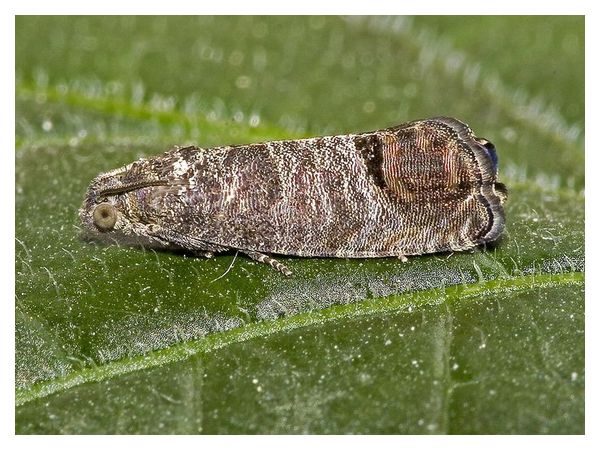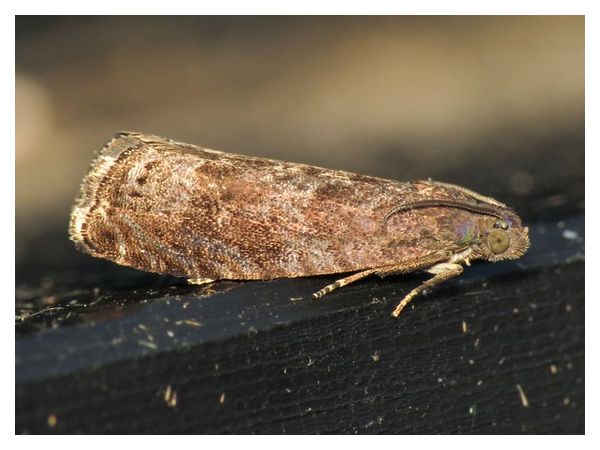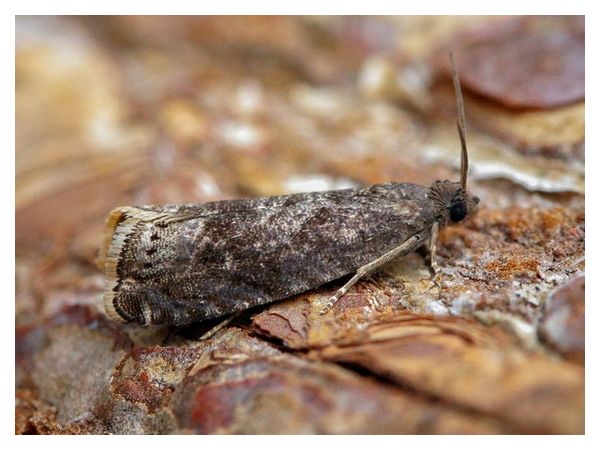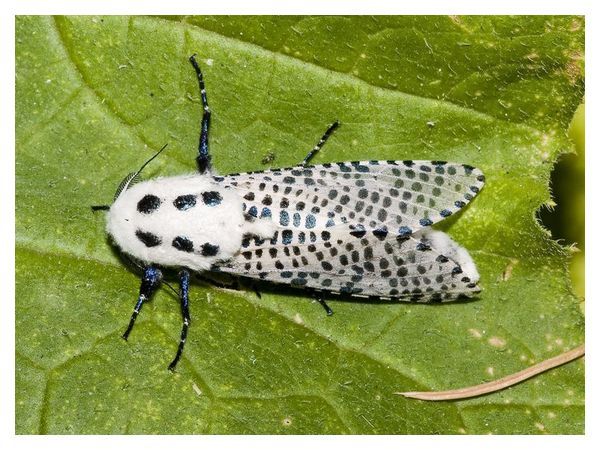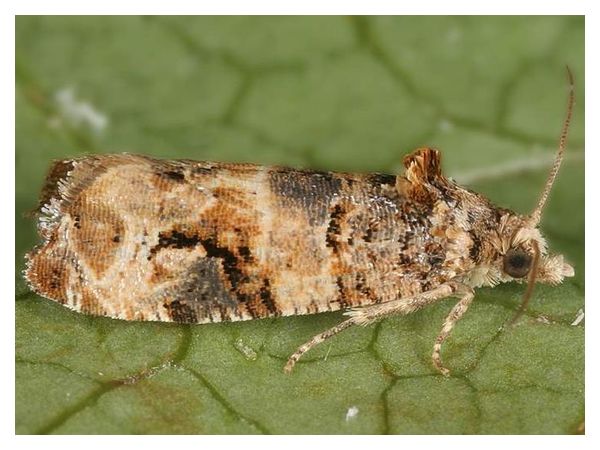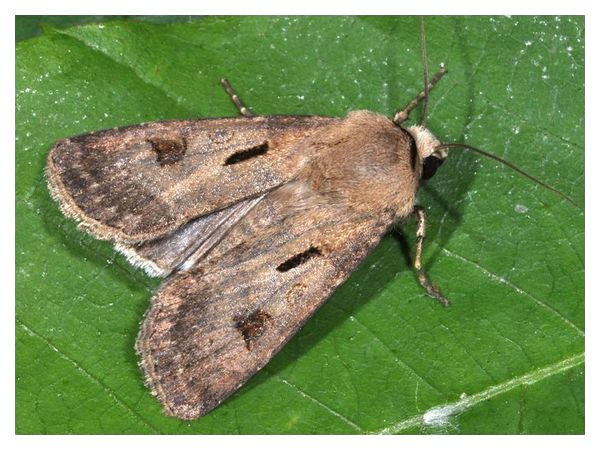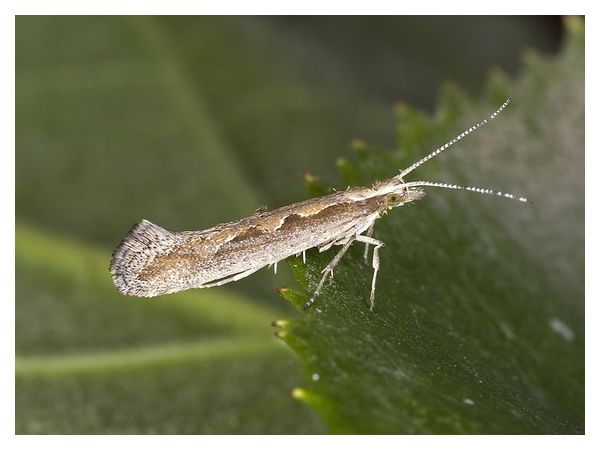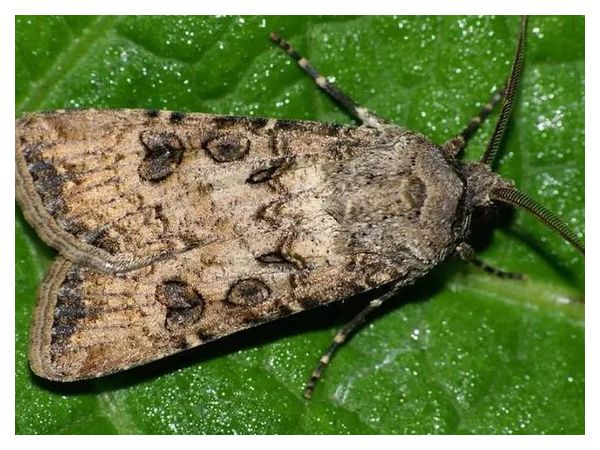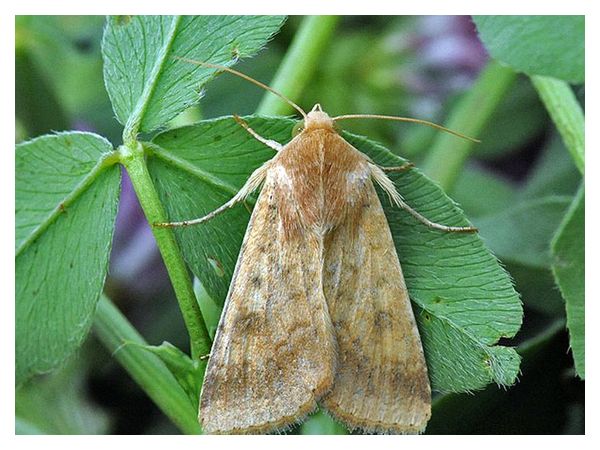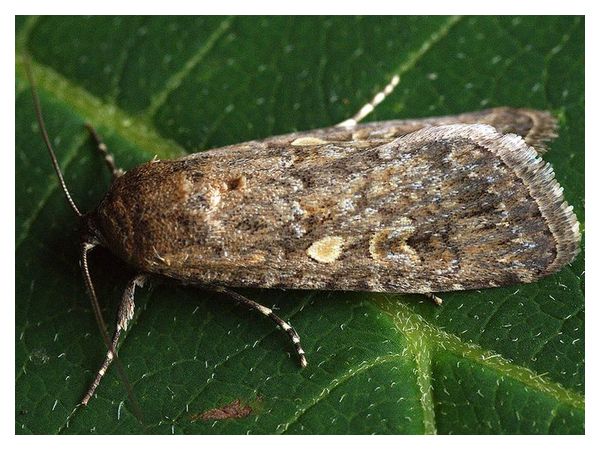The codling moth is the most common and well-known pest of orchards. The pest's larvae damage apple, pear, peach, apricot, and plum trees; a special form develops on walnuts. Reproduction is bisexual. The last instar caterpillars overwinter in a dense cocoon. The number of generations per year depends on the climate of the location...
The oriental fruit moth - is a dangerous pest that damages the fruits and shoots of many fruit crops. Among forage plants it prefers peach, pear and quince. In areas of distribution it can destroy from 50 to 100% of the crop. Reproduction is bisexual. The transformation is complete. Winter conditions are tolerated by caterpillars in cocoons that have reached an advanced age...
The plum moth - is a pest of plums, sloe, cherry plum, peach, and rarely of cherries. Caterpillars feed on the pulp of fruits, destroying and polluting them with their excrement. Damaged fruits ripen prematurely and fall off. Reproduction is bisexual. Caterpillars overwinter in a dense cobweb cocoon. They develop in 2-3 generations, depending on the climate of the area of residence...
Leopard moth - is a dangerous pest that causes significant damage to orchards, damages apple, pear, apricot, and walnut trees. Caterpillars damage more than 100 species of forest, fruit and ornamental plants. They gnaw holes in the wood and disrupt the flow of sap. Damaged branches become brittle and break even in light winds. Reproduction is bisexual. Full development can take two to three years...
The grapevine moth - is a pest of grapes, berries and other crops. It develops successfully on privet, buckthorn, sloe, hawthorn, raspberry, currant, viburnum and other plants. It feeds on flowers, ovaries and fruits. Reproduction is bisexual, development is complete. Overwinters in the pupal stage. 3-4 generations appear per year...
The heart and dart - is a polyphagous pest. Damages grains, vegetables, and industrial crops. Damage was observed on winter wheat, rye, corn, cotton, sugar beets, tobacco, kenaf, sunflower, potatoes, vegetables, ornamental plants, and tree seedlings. Development is complete. Reproduction is bisexual...
The diamondback moth - is a dangerous pest of cabbage and other cruciferous vegetables (turnips, rapeseed, mustard, radishes, rutabaga). Development is complete. Reproduction is bisexual. Pupae and, in the south, butterflies overwinter. In the tropics and subtropics it develops throughout the year. The number of generations ranges from one (in the north of the habitat) to ten (in the southern part..
The turnip moth - is a pest of vegetable and melon crops, cereals, corn, cotton, sunflower, hemp, tobacco, sesame, grapes, tea bushes, seedlings and saplings of various tree species. Development is complete. Reproduction is bisexual. Caterpillars of older generations overwinter. In the north of the range one generation develops, in the south - three or four. Belongs to the economic group of gnawin..
The cotton bollworm - is a dangerous pest, a polyphagous plant. Damaged: corn, cotton, tomatoes, tobacco, chickpeas, sorghum, okra, pumpkin, zucchini, soybeans, castor beans, sesame, hemp, peas, kenaf, jute, rope, alfalfa, peppers, cabbage, beans, onions, peanuts, sunflowers, flax, apple, pear, plum, peach, mango, citrus, geranium, clove, lemon eucalyptus, verbena and some others...
Small mottled willow moth (tomato) - Tomato cutworm (Carandrina) - broad polyphagous. The list of forage plants includes 185 species from 50 families. Caterpillars are harmful. Feeds on cotton, alfalfa, sugar beets, corn, tobacco, peanuts, sesame, soybeans, tomatoes, potatoes, peas, turnips, eggplants, watermelons, clover, sainfoin, young citrus fruits, apple trees, quince, grapes, oak trees, elms..

